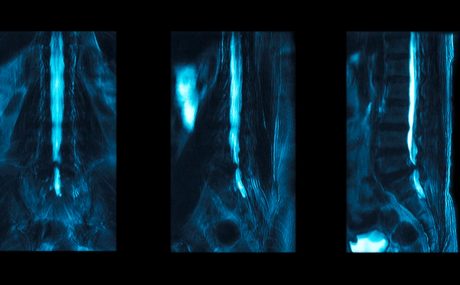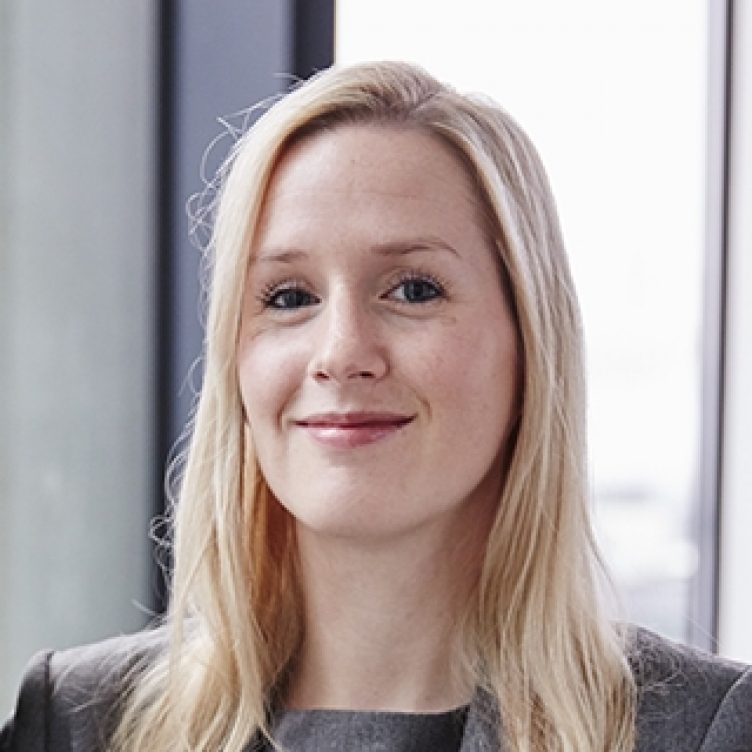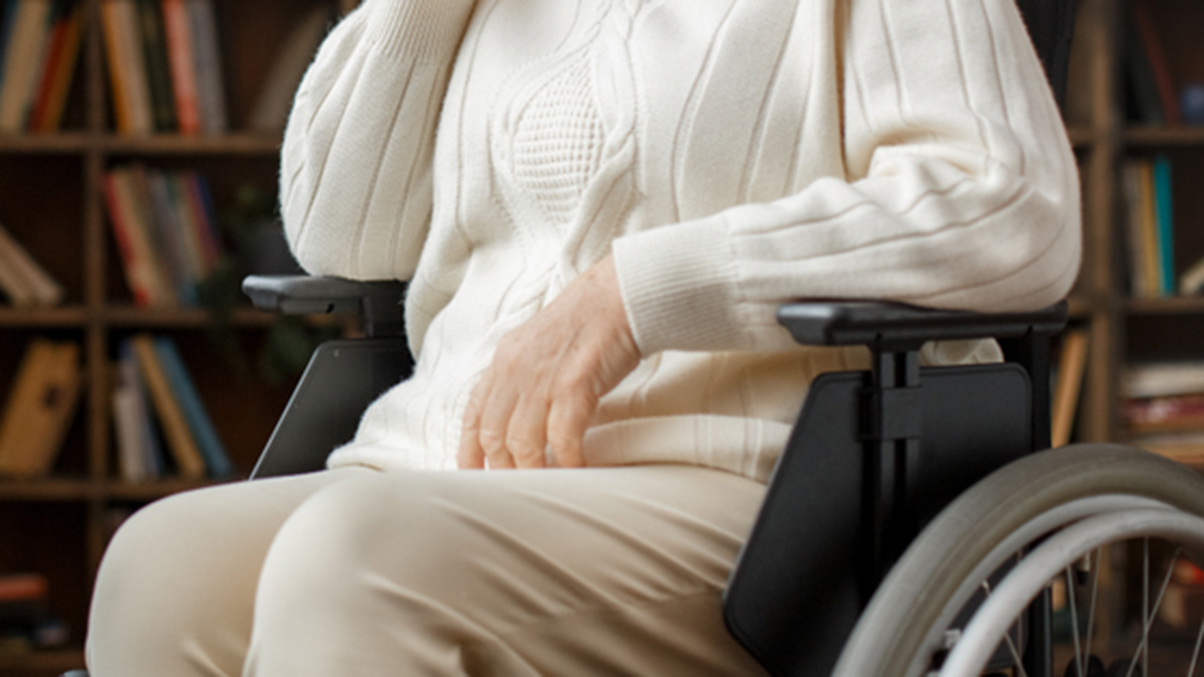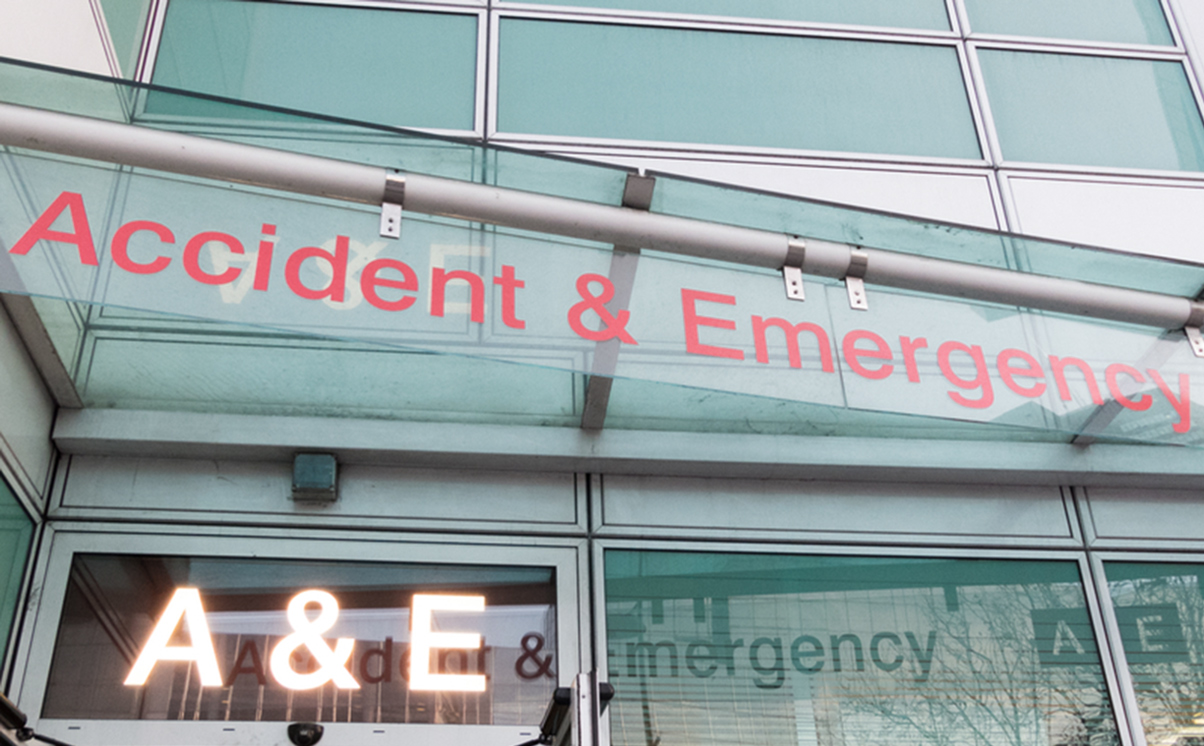At the time of his injury in 2014, JH was a fit and active 75-year-old who was enjoying his retirement with his wife. He loved walking, and every week went for an 8 to 10-mile walk with a friend.
Background
In March and April 2014, JH was treated for a urinary tract infection. After initially improving, on 14 May 2014 JH’s condition deteriorated. He complained of weakness and felt unable to stand. He was taken to the Accident and Emergency Department of the Princess Alexandra Hospital where he was admitted.
MRI scanning was carried out on 16 May 2014, which confirmed the presence of discitis and an abscess in his thoracic spine. The neurosurgical team at Queen’s Hospital, Romford were consulted, and they advised that JH be kept on bed rest and given intravenous antibiotics.
Over the following days, JH’s condition deteriorated, but the reduction in power in his legs was not noted until 19 May 2014. The neurosurgical team were consulted again, and a further MRI was carried out. JH was subsequently transferred to Queen’s Hospital, and urgent surgery to decompress his spinal cord was carried out on 20 May 2014. By the time JH arrived at Queen’s Hospital, he had no motor power in his lower limbs.
JH subsequently underwent rehabilitation at a specialist spinal cord injury centre and was finally discharged home in November 2014.
Injury
JH’s mobility was significantly reduced compared to his pre-injury condition. With inpatient rehabilitation and subsequent physiotherapy, he was able to regain the ability to walk indoors without support. However, he required an aid outdoors for short distances and a wheelchair or scooter for long distances and uneven terrain. JH fatigued easily and suffered from pain. JH and his wife had to sell their beloved home and move to sheltered accommodation as a temporary measure as their house was incapable of adaptation.
The legal case
The case was taken on by Stewarts and was run by Nadia Krueger-Young, Associate, followed by Amy Heath, Senior Associate.
Expert evidence was obtained. This was critical of the care provided by both trusts whose care JH was under in May 2014, and letters of claim were therefore served.
Allegations against the Princess Alexandra Hospital included:
- A 24-hour delay in performing the initial MRI scan
- A delay in transferring JH to Queen’s Hospital with a view to surgery
- A failure to arrange regular neurological observations throughout JH’s admission.
Allegations against Queen’s Hospital included:
- A failure to recognise the need for urgent surgical management to drain the abscess and decompress the spinal cord
- A failure to provide appropriate advice to the Princess Alexandra Hospital regarding non-surgical management of the JH’s condition
- A failure to instruct the Princess Alexandra Hospital to carry out regular neurological observations
The claimant’s primary case was that but for those failures, surgery should have been carried out on either 16 or 17 May, and this would have resulted in an excellent outcome. The secondary case was that had surgery been performed on 18 or 19 May, he would have made a much better recovery than had occurred.
Partial admissions of breach of duty were received. It was admitted that an MRI scan should have been performed on 15 May rather than 16 May and that JH should have been transferred to Queen’s Hospital sooner. However, the defendant’s case was that it was reasonable to advise conservative management initially with bed rest and antibiotics, and that transfer was only mandated when JH began to deteriorate. The deterioration should have been picked up sooner with two to four-hourly neurological observations, which the defendants conceded were not carried out.
The main area of contention between the parties was causation. The defendants raised an unusual causation defence, arguing that earlier surgery would not have made a difference to JH’s outcome. Their argument focused on the approach taken for surgery and the positioning of the abscess. They argued that it was reasonable to take a posterior approach (operating from the back), but it was likely that only an anterior approach (from the front) would have effectively decompressed the spinal cord. The anterior approach would have involved a thoracotomy and would have had a far higher risk of complications, particularly for someone of JH’s age. The claimant’s expert evidence was that a posterior approach would have provided sufficient access to drain the abscess and achieve a successful decompression.
The parties also had different approaches to the valuation of the claim, with a very low care claim being advanced by the defendant. At the time the case was valued, JH only received 30 minutes of care a morning on five days a week. It was the claimant’s case that he required significantly more care to relieve the pressure on his wife and daughter and to allow him to access the community.
Settlement
There were significant delays in this case due to court capacity, and the trial was eventually listed for May 2020. A settlement meeting was held in November 2019 in which a compromise could not be achieved. Further negotiations in February 2020 resulted in a settlement of £850,000.
Life Beyond Injury
One of JH’s hopes for the future was to visit his grandson in Japan with his wife and daughter. Following the settlement, flights were booked, but this was sadly cancelled due to the Covid-19 pandemic. He plans to rearrange the trip for next year.
Testimonial from JH’s daughter:
“The level of professional and legal expertise at Stewarts is excellent. They know what they are doing and they are very efficient at what they do. All the staff are friendly, approachable and understanding. We’ve been to the London office a few times and when we walked in we just thought ‘wow’! The offices look so professional. My mum and dad couldn’t have managed trains, so Stewarts organised transport for us so we didn’t have to worry. It all worked out pretty well.
“We received our settlement in February 2020, which was a massive weight off our shoulders. However, going into lockdown soon after has meant that it has not made much of a difference to our way of life just yet. Nonetheless, knowing that we have that compensation is a massive relief and has relaxed us all. I now know that when this is all over, I can provide the right standard of care, accommodation and equipment to my dad. Before that, there was always a worry about where the money would come from if they needed more care.
“When lockdown is over, the settlement money will enable my parents to get back into some of the things they used to enjoy doing. They used to love pottering around the garden so, with the money, they can get new accommodation which has a garden or suitable landscape. My dad cannot bend down anymore, so finding comfortable accommodation with a garden with raised flower beds will be great.
“The money will also enable my dad to be more mobile by getting a better motorised wheelchair. We are very much looking forward to a holiday to Japan next year during the cherry blossom season. It’s so beautiful out there.
“In the meantime, my parents have now learnt to use Facetime so I am keeping in touch with them regularly during lockdown but having received the settlement money is a huge relief at this moment in time.”
You can find further information regarding our expertise, experience and team on our Clinical Negligence pages.
If you require assistance from our team, please contact us or alternatively request a call back from one of our lawyers by submitting this form.
Life beyond injury
We have teamed up with other clients who have suffered catastrophic injuries to tell their stories of Life Beyond Injury. Please visit the Life Beyond Injury webpages here.
We hope that by sharing these stories, newly injured people can see that with the right support they too can overcome adversity to lead full and active lives.
You can join in the conversation and share your stories of overcoming adversity to lead a fulfilling life beyond injury: on Twitter, here #lifebeyondinjury; or on Facebook, here #lifebeyondinjury.
Subscribe – In order to receive our news straight to your inbox, subscribe here. Our newsletters are sent no more than once a month.






